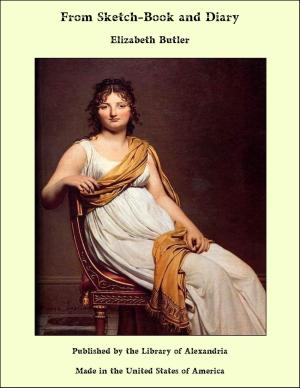The Instructor (Complete)
Nonfiction, Religion & Spirituality, New Age, History, Fiction & Literature| Author: | Clement of Alexandria | ISBN: | 9781465541352 |
| Publisher: | Library of Alexandria | Publication: | March 8, 2015 |
| Imprint: | Language: | English |
| Author: | Clement of Alexandria |
| ISBN: | 9781465541352 |
| Publisher: | Library of Alexandria |
| Publication: | March 8, 2015 |
| Imprint: | |
| Language: | English |
THE OFFICE OF THE INSTRUCTOR. AS there are these three things in the case of man, habits, actions, and passions; habits are the department appropriated by hortatory discourse the guide to piety, which, like the ship’s keel, is laid beneath for the building up of faith; in which, rejoicing exceedingly, and abjuring our old opinions, through salvation we renew our youth, singing with the hymning prophecy, “How good is God to Israel, to such as are upright in heart!”[1] All actions, again, are the province of preceptive discourse; while persuasive discourse applies itself to heal the passions. It is, however, one and the self-same word which rescues man from the custom of this world in which he has been reared, and trains him up in the one salvation of faith in God. When, then, the heavenly guide, the Word, was inviting[2] men to salvation, the appellation of hortatory was properly applied to Him: his same word was called rousing (the whole from a part). For the whole of piety is hortatory, engendering in the kindred faculty of reason a yearning after true life now and to come. But now, being at once curative and preceptive, following in His own steps, He makes what had been prescribed the subject of persuasion, promising the cure of the passions within us. Let us then designate this Word appropriately by the one name Tutor (or Paedagogue, or instructor). The Instructor being practical, not theoretical, His aim is thus to improve the soul, not to teach, and to train it up to a virtuous, not to an intellectual life. Although this same word is didactic, but not in the present instance. For the word which, in matters of doctrine, explains and reveals, is that whose province it is to teach. But our Educators being practical, first exhorts to the attainment of right dispositions and character, and then persuades us to the energetic practice of our duties, enjoining on us pure commandments, and exhibiting to such as come after representations of those who formerly wandered in error. Both are of the highest utility,—that which assumes the form of counselling to obedience, and that which is presented in the form of example; which latter is of two kinds, corresponding to the former duality,—the one having for its purpose that we should choose and imitate the good, and the Other that we should reject and turn away from the opposite
THE OFFICE OF THE INSTRUCTOR. AS there are these three things in the case of man, habits, actions, and passions; habits are the department appropriated by hortatory discourse the guide to piety, which, like the ship’s keel, is laid beneath for the building up of faith; in which, rejoicing exceedingly, and abjuring our old opinions, through salvation we renew our youth, singing with the hymning prophecy, “How good is God to Israel, to such as are upright in heart!”[1] All actions, again, are the province of preceptive discourse; while persuasive discourse applies itself to heal the passions. It is, however, one and the self-same word which rescues man from the custom of this world in which he has been reared, and trains him up in the one salvation of faith in God. When, then, the heavenly guide, the Word, was inviting[2] men to salvation, the appellation of hortatory was properly applied to Him: his same word was called rousing (the whole from a part). For the whole of piety is hortatory, engendering in the kindred faculty of reason a yearning after true life now and to come. But now, being at once curative and preceptive, following in His own steps, He makes what had been prescribed the subject of persuasion, promising the cure of the passions within us. Let us then designate this Word appropriately by the one name Tutor (or Paedagogue, or instructor). The Instructor being practical, not theoretical, His aim is thus to improve the soul, not to teach, and to train it up to a virtuous, not to an intellectual life. Although this same word is didactic, but not in the present instance. For the word which, in matters of doctrine, explains and reveals, is that whose province it is to teach. But our Educators being practical, first exhorts to the attainment of right dispositions and character, and then persuades us to the energetic practice of our duties, enjoining on us pure commandments, and exhibiting to such as come after representations of those who formerly wandered in error. Both are of the highest utility,—that which assumes the form of counselling to obedience, and that which is presented in the form of example; which latter is of two kinds, corresponding to the former duality,—the one having for its purpose that we should choose and imitate the good, and the Other that we should reject and turn away from the opposite















